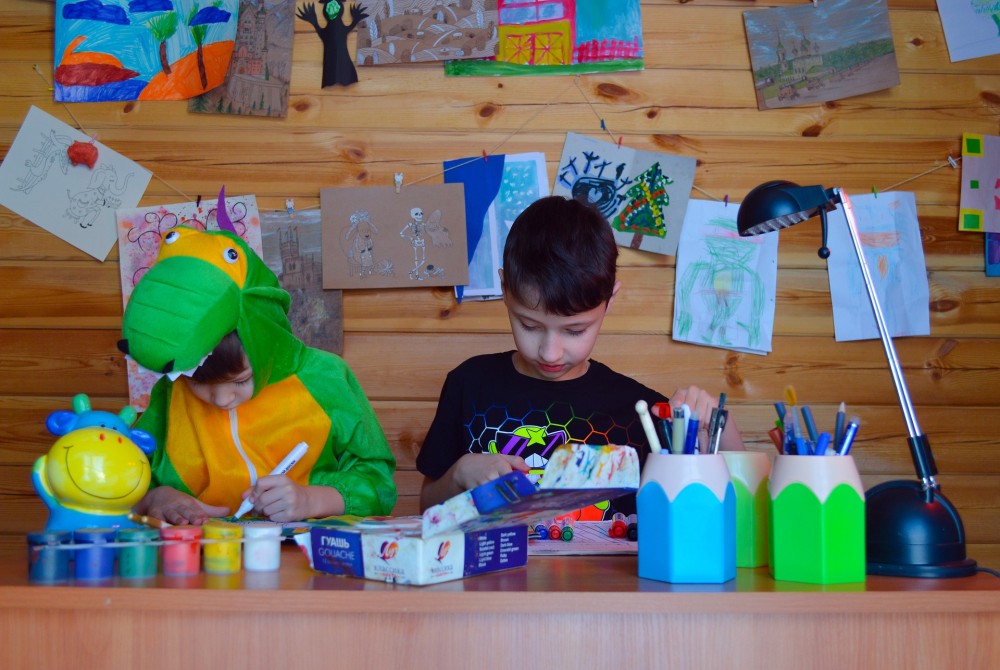Pixabay Image

Dr Akumtoshi
MD (Paediatrics) Fellow Neonatal Medicine, PGC (Neonatology)
Preschool period is a pivotal time for a child’s physical and mental development.According to CDC (Centers for Disease Control and Prevention),pre-schoolersinclude age group from 3-5 years of age. The first five years of a child’s life is really crucial for the developing brain according to the UNICEF (United Nations Children's Fund) because the experiences during this time is said to provide the base for the organizational development of the brain and a child’s entire life’s function. It has a direct effect on how a child develops learning skills together with social and emotional maturity.
With schools closed down due to covid, children are at risk of not just an inferior academic accomplishment but also at a risk of maladaptive social interaction. Social skills along with peer to peer interaction ishampered and therefore it becomes a parent’s (or a care giver’s) responsibility to impart important life skills at home.
The social interaction and development can be broadly classified into four types:
1. Independence – preschool and school children learn to be independent and do things independently during this stage. They learn how to put waste in the waste bin, how to arrange their toys properly after play, clean-up after eating, arrange their clothes, how to keep their utensils clean, brush their teeth, potty training, pull up their pants after going to the washroom etc. It may be a messy start, but start nonetheless. Many children usually learn this in school rather than athome. Whenever parents start making their child do these at home, children usually show some resistance, as the responsibility is passed on to them. Initially parents can help and guide them or do things together till the child can do independently on their own. Make sure to appreciateand praise them whenever they achieve or are able to do something on their own, as this helps the child gain confidence. Make sure you don’t praise them more than is required, as this may make the child expect the same inflatedapplause every time and everywhere. It takes patience and effort from both the parties. It is our aim that they become independent, but without being a ‘helicopter parent”.
2. Resilience – it is basically the ability to bounce back after a disappointment or a failure. It may vary from child to child, while some children may need more guidanceanother may not. A parent or a care giver has to understand that as uncomfortable as it may be, a child needs to realize the importance of getting things right eventually. It is paramount to make them appreciate the importance of getting up each time they fall, rather than making them embarrassed or miserable about it. Once they can do certain chores on their own, it boosts up their confidence and helps them take up more tasks and responsibilities on their own. There is no perfect way to achieve this, but we want both the parent and the child to work it out together. Sometimes some parents can have a “helicopter parenting” attitude and may delay a child’s developmental process. Sometimes getting out of the way in certain situation may work out best. Many a times we see that a child is more resilient and responsible at school than at home, which is usually because a child is given more independence at school. It is good to have a structured routine at home, especially with the school being shut due to Covid. Have a fixed time for going to bed and getting up.Care givers need to be a role model and participate in the routine to encourage the child, as children are more of imitators.
3. Peer to peer social and language development - The way children interact with adults is different from how children interact among themselves. Inadequate attention to children during this age group can cause catastrophe in a child’s life. In a study by Edward Mueller et al of Boston University, they found that children utilized more coordinated social behaviours in their interactions; and the origin of peer social relations was seen during object-focused contacts or play. Participation in peer social interaction was itself responsible for the increase in skilled behaviour among peer-experienced toddlers.Parents can teach them techniques of social interaction by teaching them how to listen to others, how to start or make a conversation with others. Improving their EQ (emotional quotient) by teaching children how to care for others or their relatives at home helps. Along with this, reading books to them helps them in their intellectual growth. They can be gradually taught to critically analyse stories and moral of a story. Children can be made to understand that it is okay to be wrong at times and to accept failures and to build on it for future success. It is the right time to teach them when to say thank you and sorry.
4. Sharing and taking turns- Make children understand that another person also has emotions like them. Teach them to wait for their turn at home, it prepares them for a better peer-peer interaction once they come in contact with other children. We can teach them to say‘can I have the toy once you are done playing’ which further improves their communication skill and patience at the same time. In turn a Parent or the elder sibling can show their appreciation for waiting patiently for their turn. This teaches them how to appreciate others. Teach them to share their toys or snacks with their siblings or care givers.
Few more things a parent/care-giver should understand is that there should be consistency in the practice of disciple or guidance by each care-given if there are more than one care giver. It is important to practice gratitude and focus on positive aspects of life. It is also the right time to teach them about morality. Finally, there is nothing like a ‘perfect parent’ and it is an evolving skill which is learnt lifelong.





